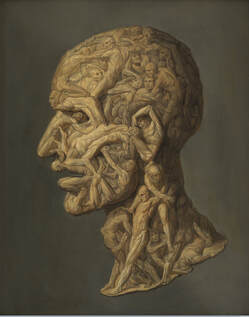
Literature and Medicine
(Spring 2023)
In “On Being Ill,” Virginia Woolf wrote that “English, which can express the thoughts of Hamlet and the tragedy of Lear, has no words for the shiver and the headache. . . . let a sufferer try to describe a pain in his head to a doctor and language at once runs dry.” Yet illness narratives are now an established literary genre. Furthermore, some argue that knowledge of literature and narrative help doctors understand their patients and their symptoms better. This course will explore a range of issues involved in the intersection of literature and medicine. We will look at, for example, the use of literature in the study and practice of medicine and medical treatment, what is at stake in diagnosing literary characters, and the kinds of literary forms illness has shaped.
(Spring 2023)
In “On Being Ill,” Virginia Woolf wrote that “English, which can express the thoughts of Hamlet and the tragedy of Lear, has no words for the shiver and the headache. . . . let a sufferer try to describe a pain in his head to a doctor and language at once runs dry.” Yet illness narratives are now an established literary genre. Furthermore, some argue that knowledge of literature and narrative help doctors understand their patients and their symptoms better. This course will explore a range of issues involved in the intersection of literature and medicine. We will look at, for example, the use of literature in the study and practice of medicine and medical treatment, what is at stake in diagnosing literary characters, and the kinds of literary forms illness has shaped.

Motifs of Madness in Literature and Culture
(Spring 2018, 2020)
This course will focus on the depiction of mental illness in western literature and culture as organized around particular themes of contemporary interest. We will study relevant primary, theoretical and contextual materials around the chosen themes. Such themes might include mental illness and crime fiction; gothic madness; burnout; obsession.
(Spring 2018, 2020)
This course will focus on the depiction of mental illness in western literature and culture as organized around particular themes of contemporary interest. We will study relevant primary, theoretical and contextual materials around the chosen themes. Such themes might include mental illness and crime fiction; gothic madness; burnout; obsession.
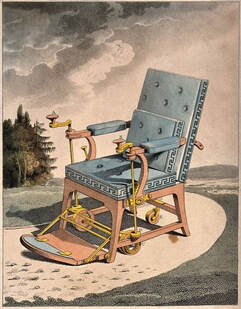
Literature and Disability
(Spring 2019, 2021)
Literature and Disability is aimed at master's level students and higher interested in literature, the body, disability studies, social work, medicine and psychiatry, among other topics. This course both introduces Disability Studies through a series of critical readings, and examines the representation of disability through a selection of historical and contemporary literary texts.
(Spring 2019, 2021)
Literature and Disability is aimed at master's level students and higher interested in literature, the body, disability studies, social work, medicine and psychiatry, among other topics. This course both introduces Disability Studies through a series of critical readings, and examines the representation of disability through a selection of historical and contemporary literary texts.
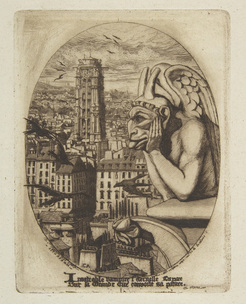
Narrating Madness in Literature and Culture
(Spring 2016, 2018)
This master's level course will consider depictions of madness in western literature from the Middle Ages to the present (all texts will be read in modern English translation). While locating texts within their contemporary contexts as far as religion, gender and medicine, the course will engage with significant modern theoretical discussions of madness and creativity as offered by Foucault, Freud and others. (Syllabus here).
(Spring 2016, 2018)
This master's level course will consider depictions of madness in western literature from the Middle Ages to the present (all texts will be read in modern English translation). While locating texts within their contemporary contexts as far as religion, gender and medicine, the course will engage with significant modern theoretical discussions of madness and creativity as offered by Foucault, Freud and others. (Syllabus here).
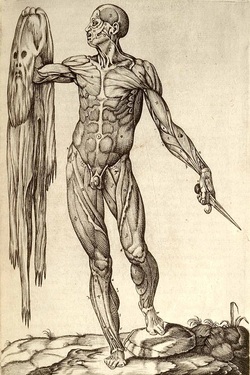
Blaming the Body
Ethics, Medicine and Culture in Western Europe (Spring 2015, 2017)
This master's level course will survey the ways in which Western European culture has rooted ethical actions and thoughts in the body from the premodern period to the early twentieth century. Ultimately, this survey will allow students to interrogate the persistence of older ideas in contemporary cultural attitudes and scientific research questions as posed by cognitive scientists and biological psychiatrists among others.
In our seminars, we will examine excerpts from a range of texts, such as medical tracts, legal treatises, illness narratives, poetry and sermons, in modern English translation.
Ethics, Medicine and Culture in Western Europe (Spring 2015, 2017)
This master's level course will survey the ways in which Western European culture has rooted ethical actions and thoughts in the body from the premodern period to the early twentieth century. Ultimately, this survey will allow students to interrogate the persistence of older ideas in contemporary cultural attitudes and scientific research questions as posed by cognitive scientists and biological psychiatrists among others.
In our seminars, we will examine excerpts from a range of texts, such as medical tracts, legal treatises, illness narratives, poetry and sermons, in modern English translation.

Academic Writing
(teaching now)
I teach and have taught a variety of academic writing courses for undergraduate and doctoral students. I am also involved with the Faculty of Arts Doctoral College (FADC) where I teach academic writing. FADC publishes a special issue of Kulturella Perspektiv biannually. You can find the latest special issue here
.
(teaching now)
I teach and have taught a variety of academic writing courses for undergraduate and doctoral students. I am also involved with the Faculty of Arts Doctoral College (FADC) where I teach academic writing. FADC publishes a special issue of Kulturella Perspektiv biannually. You can find the latest special issue here
.
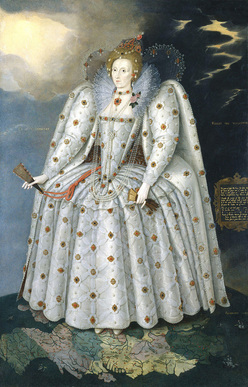
Shakespeare and the English Renaissance
(Fall 2017)
(Fall 2017)

Literary Theory and Methods
(taught Autumn 2013)
For this online master's level survey course, I taught seminars on traditional criticism, practical criticism, post-colonialism, Marxism and new historicism, feminism, the body and affect, the history of the book and sociological methods.
(taught Autumn 2013)
For this online master's level survey course, I taught seminars on traditional criticism, practical criticism, post-colonialism, Marxism and new historicism, feminism, the body and affect, the history of the book and sociological methods.
Other Teaching Experience
- Old and Middle English Literature
- 17th and 18th Century British and American Literature
- Practical Criticism
- Dissertation Supervision
- Communication Arts
- English Literature Survey
- The History of Epidemics
- Language, Brain and Cognition
Images from Wellcome Images.
